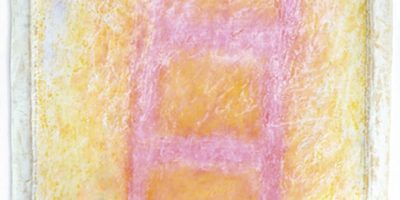On the Horizon
The latest novel from Dara Horn manages to combine recent unrest in Egypt, the nineteenth-century discovery of the mountainous archival materials in the Cairo Genizah, the writings of Maimonides and a high-tech ripped-from-the-headlines tale of irreparable sisterly conflict.
This interweaving of history and personal drama is nothing new in Horn’s fiction. In The World to Come an art heist draws together the Holocaust, the Moscow Art Theater and the Vietnam War. In All Other Nights she takes the reader into traumas of Jews North and South during the Civil War. These books, and her first novel, In the Image, use personal, page-turning drama to carry scholarly disquisitions on the intellectual, social, spiritual and political movements of an era.
Horn’s new novel is A Guide for the Perplexed (W.W. Norton, $25.95), which she described recently as the first American novel to deal with the Arab Spring. It has so many different threads on the loom simultaneously that a reader might have wished for separate novels dealing with each. Siblings play the binding role in each of the narrative patterns in this book. Josie (for Josephine) Ashkenazi, like the biblical Joseph sold into slavery by his brothers, was once abandoned in a deep pit by her older sister and her taunting pals during a childhood camp outing. The sisters’ rivalry and cruelties continue into adulthood. Josie, wunderkind of the tech world, has invented a program that will store every memory and experience; she names it Genizah. And when, elevated by fame and fortune, she is convinced by her sister to accept a flattering invitation to the new library in Alexandria, she’s kidnapped and assumed executed. Her sister moves into the bed of Josie’s husband, and takes over mothering Josie’s young daughter.
Meanwhile, scholar Solomon Schechter, in the 1890s in Cambridge, muses on the life of his twin brother, who is making a life in the swamps and sunshine of Eretz Israel. Schechter is about to visit the 300,000 scraps of paper in the Genizah, or storeroom of the old synagogue in Cairo, where any document with letters written in the sacred language of Hebrew has been preserved, crumbling with age and mysterious in its possibilities. The Genizah, untouched, holds missing fragments of sacred texts along with the powdery remnants of 500-year-old grocery lists.
Also meanwhile—at least in Horn’s telling—Moses Maimonides, twelfth-century physician and scholar in Alexandria, the author of the original Guide for the Perplexed, sends his younger brother on a fruitless herb-acquiring mission to the Far East. While these sibling stories play out in Horn’s telling, each adding some resonance to the central drama
of the kidnapping, Josie is being held captive in the City of the Dead, chained and
beaten, kept alive only because of her gifts in coding.
You can fault this novel for its unlikely yoking of potboiler, spiteful-sister drama and historical veracity, but its central explorations about memory (what we hold dear, what we try to hold in mind, what we lose our hold on) are fascinating, and the core idea behind Josie’s brilliant software program—that there’s merit in documenting everything as it really was, not as we remember it to have been—is more chilling in its own way than the cell where Josie’s tormentors have closed her up.
Susan Weidman Schneider is Lilith’s editor in chief.




